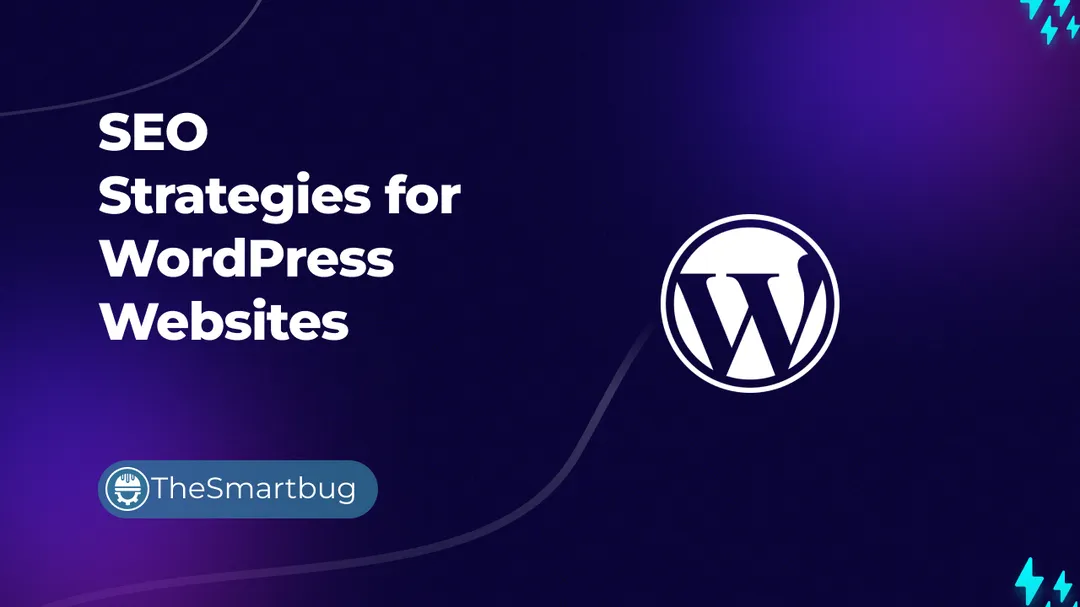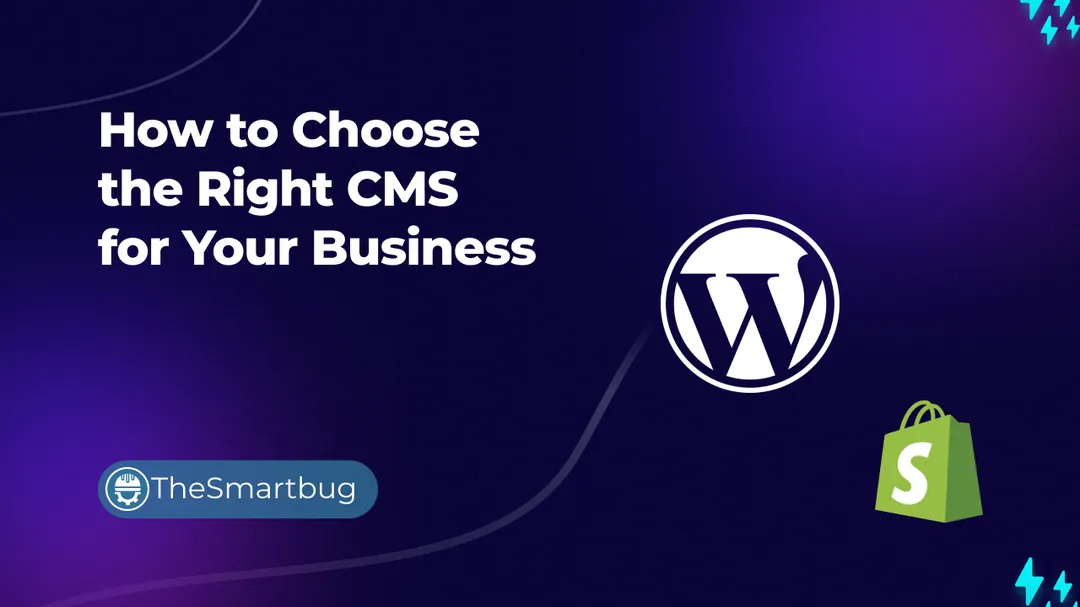Introduction
Selecting the right Content Management System (CMS) for your business is a crucial decision that can impact your online presence, ease of website management, and overall business growth. Whether you’re setting up a blog, an e-commerce store, or a comprehensive business website, the right CMS can streamline your operations and enhance user experience. Here’s a guide to help you choose the best CMS for your business, along with an overview of popular CMS options and their pros and cons.
Understanding Your Business Needs
Before diving into the specifics of various CMS platforms, it’s essential to assess your business needs. You need to figure the following and create a checklist or some sort of table which answers the following points.
- Purpose of the Website: First and foremost, figure out what is the website for. Is it a blog, an e-commerce store, a portfolio, or a corporate website?
- Budget: Next comes the finances. Find out how much are you willing to invest initially and for ongoing maintenance?
- Technical Expertise: For sure some tech skills are required for setting up the blog. Ask yourself, do you have technical skills, or will you need a user-friendly, non-technical solution?
- Scalability: Do you think or see a possibility for the site to scale, Can the CMS grow with your business?
- Customization: Do you need extensive customization, or are you looking for a more straightforward, out-of-the-box solution?
Popular CMS Options
Now you may have figured out quite a lot of the type of the website you want to setup and the requirements. Next is to plan which CMS is the best option for your needs. Here are some of the most popular CMS platforms, each offering unique advantages and potential drawbacks:
1. WordPress
Although a lot is being said now a days in the news for the Wordpress and its future, because of their ongoing spat with the company WP Engine, well it still is one of the most powerful CMS out there. Not to forget, it is pretty popular as well.
Many of its perks also include
- User-Friendly: Easy to use with a vast library of themes and plugins.
- SEO-Friendly: Built-in SEO features and plugins like Yoast SEO.
- Highly Customizable: Thousands of themes and plugins for customization.
- Large Community: Extensive support and resources.
But it has a couple demerits as well.
- Security: Popularity makes it a target for hackers; requires regular updates.
- Speed: Can be slow without optimization.

2. Shopify
Shopify, one of the largest ecommerce store company, and also the one which has the largest commercial Ruby codebase (Sorry, being a developer, cannot ignore that either), also offers CMS for managing the ecommerce stores. Some of the other perks include
- E-commerce Focused: Built specifically for online stores.
- Ease of Use: User-friendly interface with drag-and-drop functionality.
- Security: Robust security features and SSL certificates included.
- 24/7 Support: Excellent customer service.
What are its demerits, you ask? Well, to name a few
- Cost: Monthly fees and transaction fees can add up.
- Customization Limits: Limited customization compared to open-source platforms.

3. Joomla
Alright, let’s talk about Joomla. Yeah, that other CMS everyone kinda forgets exists. Sure, WordPress is like the flashy popular kid, and Drupal’s the edgy, intellectual cousin. But Joomla? It’s that middle child who does just as much work but somehow gets zero credit.
Joomla is actually weirdly versatile. It’s like, “Hey, I can do blogs! I can do e-commerce! I can even build a whole community site with forums and all!” But most people still ignore it like it's an old Nokia phone. And setting it up? Well, it's not going to hold your hand, but once you figure it out, Joomla is like that old friend who shows up at your house with a six-pack and some weird but surprisingly helpful ideas.
So if you’re feeling rebellious enough to skip WordPress and try Joomla, congrats! You're about to enter a world of loyal fans, niche plugins, and the endless possibility of saying, “Yeah, I actually use Joomla.”
- Flexibility: Suitable for a variety of websites, including blogs and e-commerce.
- User Permissions: Advanced user management options.
- Extensibility: Numerous extensions and templates available.
Don't think that Joomla doesn't have disadvantages. It sure does has.
- Learning Curve: More complex than WordPress; may require technical skills.
- Updates: Can be complicated to manage.

4. Drupal
Drupal, The "serious" CMS. You don’t just use Drupal, you commit to it. It’s like, “Oh, you wanted a quick and easy setup? That’s cute.” Drupal expects you to know what you're doing, and if you don't… well, it’ll just let you quietly suffer.
But here’s the thing: once you break through that thick wall of setup pain, Drupal is pretty much unstoppable. It’s built like a tank and can handle anything you throw at it—massive sites, complex data structures, you name it. It’s not for the faint-hearted, but it’s perfect for those people who like to take things apart and rebuild them just because they can.
And yeah, there's a community! Not a "super-friendly, let's-hug-it-out" type of community, but a "hey, if you survive this, you're one of us" kind. So, if you’re ready for a CMS that demands respect and possibly your sanity, Drupal is waiting.
- Powerful: Highly flexible and customizable.
- Security: Strong security features.
- Scalability: Excellent for large, complex websites.
Want to know where it lacks? Here's a few points
- Complexity: Steep learning curve; best for those with technical expertise.
- Resources: Requires more server resources than other CMS platforms.

5. Ghost
Ah, Ghost—the good guy CMS that just wants to help you blog without turning it into a three-ring circus. While other platforms are busy adding 500 random features you’ll never use, Ghost is over here like, “Hey, I just made a super clean, fast publishing platform for you... no big deal.” It’s almost suspiciously nice.
Ghost doesn’t try to pull you into plugin madness or throw you into a maze of settings. You want to write? Cool, Ghost gets it. You want a blog that loads fast and looks good without you doing backflips in the code? Done. It’s so straightforward it feels almost weird, like when a stranger on the internet is genuinely helpful.
So if you’re tired of complicated setups and just want to get your thoughts out there, Ghost is like, “Hey, no pressure, but I got you.”
Where Ghost shines is
- E-commerce Strength: Designed for e-commerce with extensive features.
- Customization: Highly customizable for unique business needs.
- Scalability: Suitable for both small and large online stores.
But it has some demerits as well. Yes, I know you can figure out I've a soft corner for Ghost, that's because this site is also using Ghost. 😄
- Cost: Higher cost for the enterprise version.
- Complexity: Requires technical knowledge to set up and maintain.
6. Magento
If CMS platforms were cars, Magento would be that heavily modified, supercharged monster truck with five layers of custom paint and way too much horsepower. It’s not here for casual little shops; it’s here to build empires. Serious e-commerce empires.
Of course, Magento doesn't come with an instruction manual for mortals. You don't just "set up" Magento—you wrangle it, like taming a wild horse. You’ll need a developer, a big hosting budget, and maybe some caffeine on standby because this beast has no chill. But if you survive the setup? Magento will pretty much let you build a digital Walmart with global reach.
So yeah, if you’re in the big leagues and don’t mind getting your hands dirty (and probably breaking a sweat), Magento’s here to help you conquer the e-commerce world. Just don’t expect it to be gentle.
- E-commerce Strength: Designed for e-commerce with extensive features.
- Customization: Highly customizable for unique business needs.
- Scalability: Suitable for both small and large online stores.
But you already know the drill, you've already figured out by now, like almost all other CMS, it also has the same demerits, like others
- Cost: Higher cost for the enterprise version.
- Complexity: Requires technical knowledge to set up and maintain.

7. Wix
Wix—ah, the “paint-by-numbers” website builder of the internet. Wix is here for you when you want a website, like, right now and you’re not trying to reinvent the digital wheel. Just drag, drop, boom—website. It’s like that friend who thinks DIY home decor is revolutionary: “Look, I made a website, and it only took me ten minutes!”
But hey, if you’re in it for the quick win, Wix gets it done. You don’t have to know code, design, or, really… anything. And the templates? They’re polished enough to impress your mom, and they’ll make you look like you know what you’re doing, even if you really don’t. So if you want a nice-looking site without diving into the tech abyss, Wix is basically your friendly, no-fuss website sidekick.
- Ease of Use: Drag-and-drop builder, no coding required.
- Design: Beautiful templates and design flexibility.
- Integrated Tools: Includes hosting, domain registration, and SSL.
Watchout, it has quite different disadvantages that the previous CMS.
- Customization: Less flexible than open-source CMS platforms.
- SEO: Limited SEO capabilities compared to WordPress.
8. Squarespace
Squarespace: the website builder that’s basically a lifestyle brand at this point. If it could wear clothes, it’d be in a turtleneck sipping an oat milk latte. You’ve probably heard the ads a thousand times: “Make it beautiful. Make it yourself.” And yeah, they’re not lying—it’s the CMS equivalent of an Instagram filter. Just drag, drop, and boom—instant website that looks like a design agency spent weeks on it.
Squarespace is perfect for when you want your site to look sleek without learning the dark arts of HTML and CSS. It’s for artists, small businesses, and your friend who just started a blog to post artisan sourdough recipes. It’ll hold your hand through everything, sometimes to the point where you’re like, “Chill, I can handle this.” But let’s be honest—you like that it does the heavy lifting.
So, if you’re aiming for minimalist, professional vibes with zero coding-induced headaches, Squarespace is ready with its perfectly curated templates and just the right amount of smug satisfaction.
- Design: Stunning, professionally designed templates.
- All-in-One: Includes hosting, domain, and SSL.
- User-Friendly: Easy to use with a drag-and-drop interface.
Lets check what can go salty when talking about Squarespace.
- Cost: Monthly subscription can be pricey.
- Limited Plugins: Fewer third-party integrations and plugins compared to WordPress.
9. NetlifyCMS (Decap CMS)
Full disclosure, this is the CMS I started using or more accurately said, started developing themes with. It is the underdog CMS for those who don’t want their website editor tied to some big, bloated platform that talks too much. If other CMSs are loud roommates who leave dishes in the sink, NetlifyCMS is that quiet, self-sufficient one who always pays rent on time and magically keeps the fridge stocked.
It’s open-source, lives in your Git repo, and basically whispers, “Hey, you want full control? Cool, I’m here for it.” Sure, you’ll need to know a bit about Git and static site generators, but if you’re into that DIY, “I built this from scratch” vibe, you’re gonna love it. Plus, it plays nice with modern tools and makes you feel like a tech wizard without the 3 a.m. debugging sessions.
So, if you’re tired of being hand-held and want a CMS that’s flexible, lightweight, and way cooler than it lets on, NetlifyCMS is like, “Hop in, we’re building sites our way.”
- Design: Stunning, professionally designed templates.
- All-in-One: Includes hosting, domain, and SSL.
- User-Friendly: Easy to use with a drag-and-drop interface.
What it lacks, it still the problem around I feel.
- Limited Plugins: Fewer third-party integrations and plugins compared to WordPress.
Conclusion
Yous see, Choosing the right CMS for your business depends on your specific needs, technical expertise, and budget. WordPress is a versatile option suitable for most businesses, especially those looking for a customizable and SEO-friendly platform. Shopify and Magento are excellent for e-commerce, while Joomla and Drupal offer robust solutions for more complex requirements. For those seeking simplicity and beautiful designs, Wix and Squarespace are solid choices.
By carefully considering the pros and cons of each CMS and aligning them with your business goals, you can select a platform that will help you build a strong online presence and drive growth.
Checkout our other post on SEO optimization



